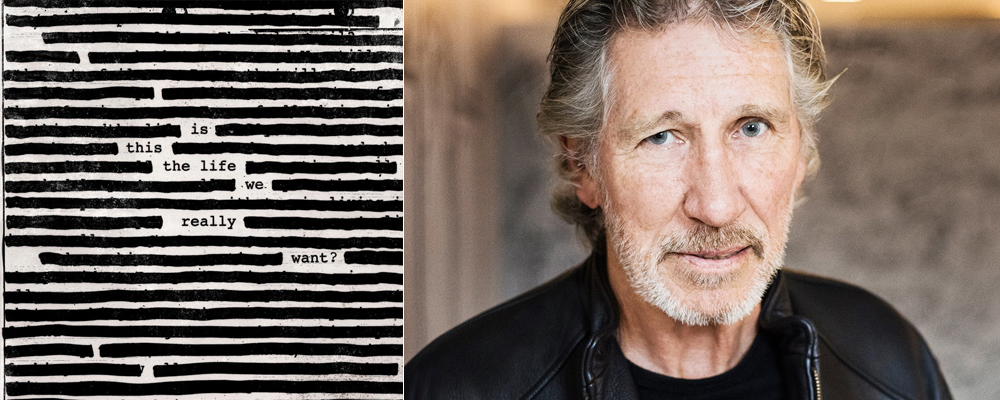Roger Waters Holds True on ‘Is This The Life We Really Want?’
Stephanie Hernandez
The driving force behind one of rock’s most iconic groups, Pink Floyd, Roger Waters is nothing if not a dedicated conceptualist. Though “Is This The Life We Really Want?” comes across as polished and new, fans will be quick to recognize the familiar themes running through it as well as its 25-year-old predecessor, “Amused to Death.” That being said, this particular record is relevant, direct and powerful—everything a loud protest album should aim to be. A condemning assessment of current events, subtlety is not exactly Waters’ endgame here, and the music is all the better for it. Waters uses the album’s grandiose twelve tracks to dissect and deconstruct larger concepts like injustice, greed and the swell of support for spineless politicians (yes he means Donald Trump). Though collaboration with seasoned producer Nigel Godrich (Beck, Radiohead) failed to lead us down any new pathways, what we did gain was a collection of what may be Waters’ most thoughtful and refined tracks to hit airwaves in over 20 years.
Some get better with age; some get angrier. Waters has managed to transcend both. At 73, the dynamo is impassioned about the current state of the union—so much so that “Is This the Life We Really Want?” comes complete with an ‘explicit lyrics’ warning usually reserved for outspoken hip-hop artists. Insightful, no-holds-barred, political commentary ahead. Ambient noises broken up by aggressively spoken phrases do harken back to Pink Floyd’s heyday, but “Is This the Life We Really Want?” does remain firmly rooted and engaged in the present. His blunt lyricism is a breath of fresh air and calls attention to the issues at the root of his anger. This is perhaps best exemplified by the candidness of “Picture That,” where Waters sings, “Picture your kid with his hand on the trigger/ Picture prosthetics in Afghanistan” and “Picture a shithouse, with no fucking drains/ Picture a leader, with no fucking brains” (a raw sentiment we can definitely get behind).
Moving on to more poetic expression with the Godrich-mastered “The Last Refugee,” the track still includes waters’ signature sound effects (angry, disembodied voices) while incorporating wonderfully written lines about lovers “Under lemon tree skies” with their “dreams/ up to our knees/ In warm ocean swells.” This shows off a softer side to Waters we do not often get to see. The man’s voice has weathered from age, but instead of impeding the sound of the record, it lends a richness and warm vulnerability to otherwise bleak subject matter. Though his partnership with Godrich did not bring around the level of change one may have expected or hoped for, we are still given a record that shows steadfast commitment to personal ideals and Roger’s willingness to stand behind them for decades. That seems like more of what we need more of in times like these.
Roger Waters was right. His misanthropic predictions of life in the modern age made 25 years ago on his last solo record, “Amused to Death,” have proved eerily accurate—thus setting up “Is This the Life You Want?” as the answer to our current predicament. Depending on how you feel about Waters’ ramblings, you will either find his accusations lend authentic, albeit grim perspective to the world—or merely another impenetrable, preachy voice in the crowd. Despite his tendency to slip into the dogmatic, Waters is still able to make each track sound genuine and powerfully heartfelt. His thoughtful yet uncontrived songwriting style shines here, and though there are clear references to Pink Floyd’s past, never once does the album feel tired. “Is This the Life You Want?” is dusted with just enough nostalgia to get you through the world’s current rough patch.
“Is This the Life You Want?” is available on Apple Music June 2.

